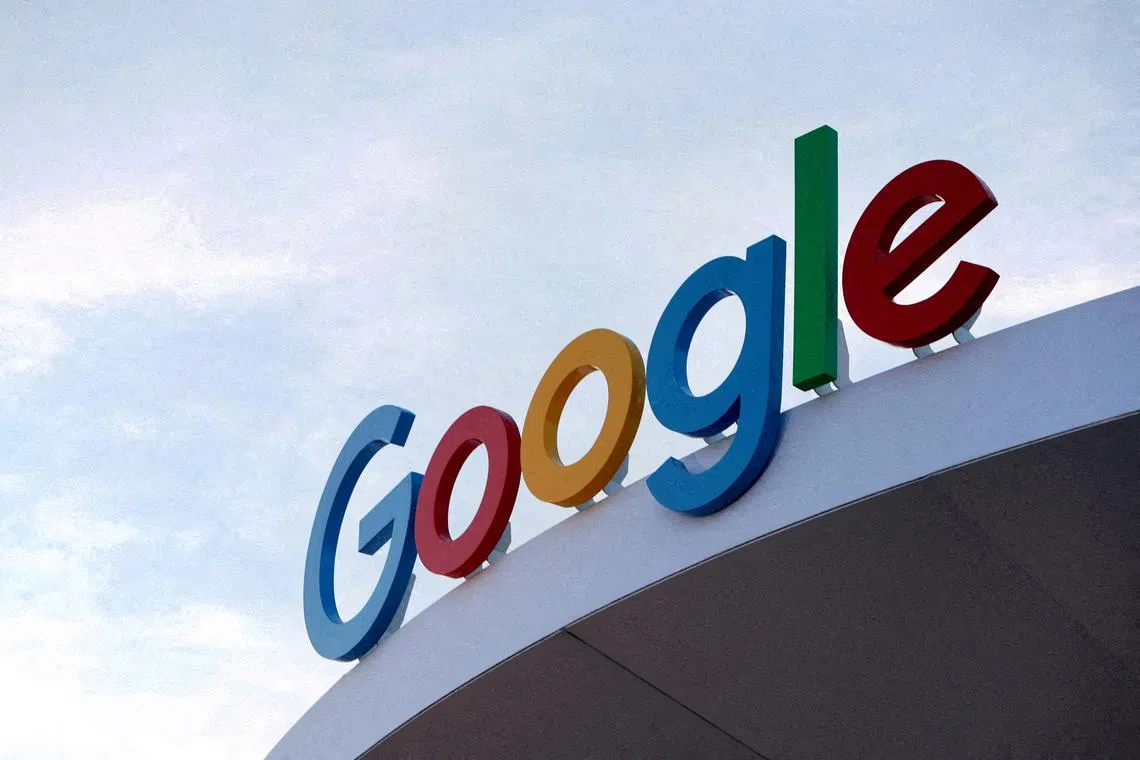Alphabet reports 29% jump in profit despite Wiz deal setback, as AI efforts begin to pay off
Sign up now: Get ST's newsletters delivered to your inbox

Google’s parent company Alphabet reported strong revenue growth in its search advertising and cloud-computing businesses.
PHOTO: REUTERS
SAN FRANCISCO – Google faced a setback on July 22 when the cyber security start-up Wiz rejected its US$23 billion (S$30.9 billion) acquisition offer, a deal that could have given momentum to its cloud-computing operations.
On July 23, Google’s parent company Alphabet reminded investors that it is doing just fine even without the deal. The tech giant reported strong revenue growth in its search advertising and cloud-computing businesses, raising its profit, though the increase in YouTube ad sales fell short of expectations.
In the second quarter, Alphabet posted US$84.7 billion in quarterly sales, up 14 per cent from a year earlier and narrowly exceeding analysts’ estimate of US$84.1 billion, according to data compiled by FactSet.
The company’s profit climbed 29 per cent, to US$23.6 billion, beating Wall Street’s expectation of US$22.7 billion.
The results reminded investors of the stability of Google’s advertising-fuelled consumer services, which are used by billions of people, even as the company searches for additional sources of revenue.
In the wake of the failure to acquire Wiz in a bid to strengthen Google Cloud, attention will return to Google’s aggressive roll-out of artificial intelligence (AI).
The company already has incorporated generative AI into all its products and increased its spending on data centres and associated hardware to underpin the technology. Now, Google executives said, those investments have started to bear fruit.
Alphabet’s chief executive officer Sundar Pichai said on a conference call after the earnings results were released that the company’s AI initiatives were “driving new growth”.
“Year-to-date, our AI infrastructure and generative AI solutions for cloud customers have already generated billions in revenues and are being used by more than two million developers,” he said. He added that the company was “seeing great progress with AI Overviews”, which are answer summaries featured in search results.
The company has gone to great lengths to spend on its future. Alphabet said that it paid US$13.2 billion on capital expenditures in the second quarter, surging 91 per cent from US$6.9 billion a year earlier, as the company continued to build out its AI capabilities.
Google has largely overcome a digital advertising slump that began in 2022 in the midst of economic uncertainty, rising interest rates and inflation. The company’s search engine and video platform YouTube remain the two most visited websites in the world, according to data from Similarweb, which tracks tech market share. That makes them essential destinations for advertisers looking to reach consumers.
One component of Google’s ad business had long been the use of third-party cookies, bits of code that – among other things – help tech companies, publishers and advertisers track web users to show them ads. Google said it no longer planned to get rid of third-party cookies on its Chrome web browser.
Google had first announced the plan to kill cookies in 2019, saying it would give internet users more privacy. Regulators and the rest of the digital ad industry were sceptical of the company’s approach, causing it to delay the proposal numerous times. Now, it says it will let Chrome users decide if they want to allow third-party cookies or not.
Revenue from Google’s search engine, its largest business, rose 14 per cent to US$48.5 billion in the second quarter, above analysts’ estimate of US$47.6 billion. The expansion was driven by retail and financial services ads, executives said on the call.
Advertising sales at YouTube climbed 13 per cent to US$8.7 billion, missing the US$8.9 billion expected by analysts. There was also robust demand for YouTube music and TV services, which are available through subscriptions, executives said.
Google Cloud, the company’s division that offers software and technology services to other businesses, recorded a 29 per cent increase in revenue, to US$10.3 billion. Analysts had estimated US$10.2 billion. It is a slower pace of growth than in previous years. The division reported an operating profit of US$1.2 billion in the second quarter, its biggest profit on record. NYTIMES


